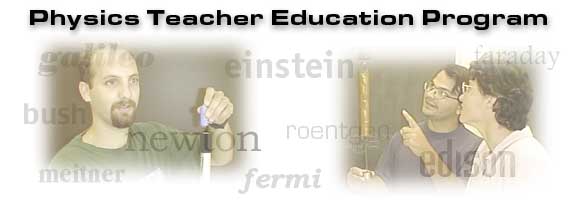

(Under revision; last updated 2012
| INDEPENDENT STUDY (APP - Amusement Park Physics) | 1 s.h. | Fall/Spring |
This informal optional course allows students to address specialized interests or needs. This variant is suitable for any student who has completed an introductory sequence in physics. Contact program coordinator for details.
Name: Ken Wester, Coordinator
Physics Teacher Education Program
Office Location: Moulton Hall, Room 322
Office Hours: drop in or by appointment
Telephones: (309) 438-2957 (office); 309-660-9902(cell)
E-mail address: kwester@ilstu.edu
Because this course is an independent study involving a theme park of the student's choosing (e.g., Six Flags, Great America), students will complete work on their own schedule and at their own expense providing their own transportation. Students should arrange a mutually agreeable time to meet with the instructor of record as necessary.
The student will then conduct and complete a series of Amusement Park Physics exercises. To this end the student will:
It is assumed that the student has sufficient understanding in the area of mechanics (kinematics and dynamics) to complete the required exercises independently. It is not the intention of this independent study course to provide training in this area. Students will inadequate background are expected to remediate using their own time, effort, and resources.
The goals of this independent study course are to help the teacher candidate to:
Students are not required to purchase any textbook for this course. The student will receive a packet of materials including a workbook, acceleratometer, and inclinometer (some assembly required).
The student will complete activities associated with 6 of the 14 individual rides described in the workbook provided.
The final course grade will be determined on the basis of the number of satisfactorily completed and scored units submitted by 4 P.M. on the Friday of finals week. NO INCOMPLETE GRADES OR TIME EXTENSIONS WILL BE GRANTED. Grades will be assigned on the following basis:
Students are expected to be honest in all academic work. A student's name on any in academic exercise shall be regarded as assurance that the work is the result of the student's own efforts. Offenses involving academic dishonesty include, but are not limited to, the following: cheating, computer dishonesty, plagiarism, grade falsification, and collusion. For more information about this important topic, visit the Student Dispute Resolution Web site.